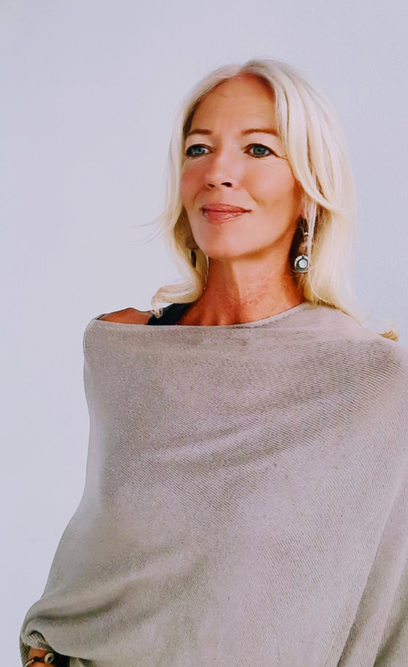The love you long for starts within
Why you can’t truly connect when you keep abandoning yourself
Many people long for genuine connection, but often find themselves stuck in relationships where they slowly lose touch with who they are.
This blog explores why authentic love doesn’t just appear when you’re still carrying codependent patterns and why the path to healthy relationships begins with the one you build with yourself.
We all long for love that feels real, where you can be yourself, feel understood, and truly met.
But when you’ve grown up believing that love has to be earned, that longing becomes harder to reach.
Codependency is the habit of pleasing, adapting, and losing parts of yourself. It slowly pulls you away from the depth and authenticity you’re seeking.
Not because you’re unworthy of it, but because no one ever showed you how to bring your full self into a relationship.
This blog brings it back to the core:
Why real love starts with the connection you have with yourself.
Why codependency quietly distorts what you’re trying to build.
And how to open the door to love that truly sees you, steady, mutual, and real.

What is an authentic relationship?
An authentic relationship is a connection where both partners can be fully themselves.
Where no one has to change who they are just to keep love intact.
Where boundaries are natural, and emotions are free to move and be felt.
In a real relationship, love is not a transaction.
It’s not a cycle of push and pull, manipulation or pleasing.
It’s a mutual exchange, rooted in equality, openness and emotional safety.
You’re allowed to show up with everything you feel.
Your needs matter just as much as the other person’s.
You don’t have to shrink or work harder to be worthy of love.
Why Codependency Blocks Authenticity
If you grew up believing that love depends on how well you care, sense, or adapt to others, chances are you’re still carrying that pattern into your relationships.
You feel responsible for how the other person feels.
You shrink yourself to avoid conflict.
You tune in to what they need, but lose sight of your own self.
Instead of fully revealing yourself, you offer a version shaped by the unconscious hope of being accepted. And that is the very opposite of authentic love.
The Version of You That Was Never Truly You
Like narcissists, codependents also develop a false self, but for very different reasons. Not to manipulate, but to be loved.
This false self becomes the pleaser, the helper, the ever-available partner.
As long as you move through life from that adapted version of yourself, real connection cannot happen. Because what others meet is not the whole of you, but the version shaped by your need to be accepted.
Authenticity doesn’t mean emotional oversharing
A common misconception: to be authentic, you must share everything, including your deepest wounds and trauma. But authentic connection is not about emotional overspill. It’s about standing in your truth, without losing yourself in someone else’s.
To be authentic means staying loyal to your truth.
It means honouring your feelings, not by hiding them, but also not by handing them over to be carried by someone else.
It means learning how to regulate yourself, so you can express your emotions without making the other person responsible for them.
The connection with your inner child & nervous system
Your capacity for authentic connection was shaped in your first relationships, with your parents or caregivers.
When you learned that your needs were "difficult" or that love always came with conditions, your nervous system adapted for survival:
- Pleasing, scanning, and adapting, as a guarantee of (conditional) love.
- Abandoning boundaries, out of fear of rejection.
- Losing yourself, because you learned that your true self was too much.
That old imprint still influences how safe you feel in connection. Even if you know today that you are allowed to have boundaries, your body often feels something very different.
The fear beneath codependency. If I show my true self, I’ll lose love
Authentic relationships ask for vulnerability. For showing yourself, including your doubts, your needs, your boundaries and longings.
But for someone with codependent patterns, that feels dangerous.
The old script still whispers:
- If I show how I really feel, I’ll be rejected.
- If I set a boundary, they’ll get angry.
- If I stop fixing or caring, they’ll leave me.
That deep, unspoken script is exactly what gets in the way of true connection.
Authentic relationships are mirrors, not saviors.
A true partner reflects your growth. They don’t rescue you.
Many codependents unconsciously seek a partner to fill the gap left by unmet childhood needs. But real love doesn’t come from being rescued.
It comes when you stop searching for a missing parent in the other.
When you can carry yourself and choose someone to walk beside you, not carry you.
Your nervous system is the foundation for real connection
Authentic love only feels safe when your nervous system knows how to rest.
If your system still links pleasing with love, healthy connection might feel dull, even unsafe.
That’s why healing your nervous system is essential for authentic relationships.
First, safety within yourself.
Then, safety with another.
Ready to stop losing yourself and gently find your way back home?
Find out how the 16-week Codependency Recovery Programme can help you lay the foundation for real, authentic connection.
Or take the free self-test to explore whether codependency plays a role in your life.
Authentic love doesn’t ask you to be perfect.
It asks you to be present, with all that you are.
Not from fear or self-abandonment, but from truth.
When you learn to truly stand by yourself, you create space for love that reflects rather than rescues, for connection that nourishes rather than depletes.